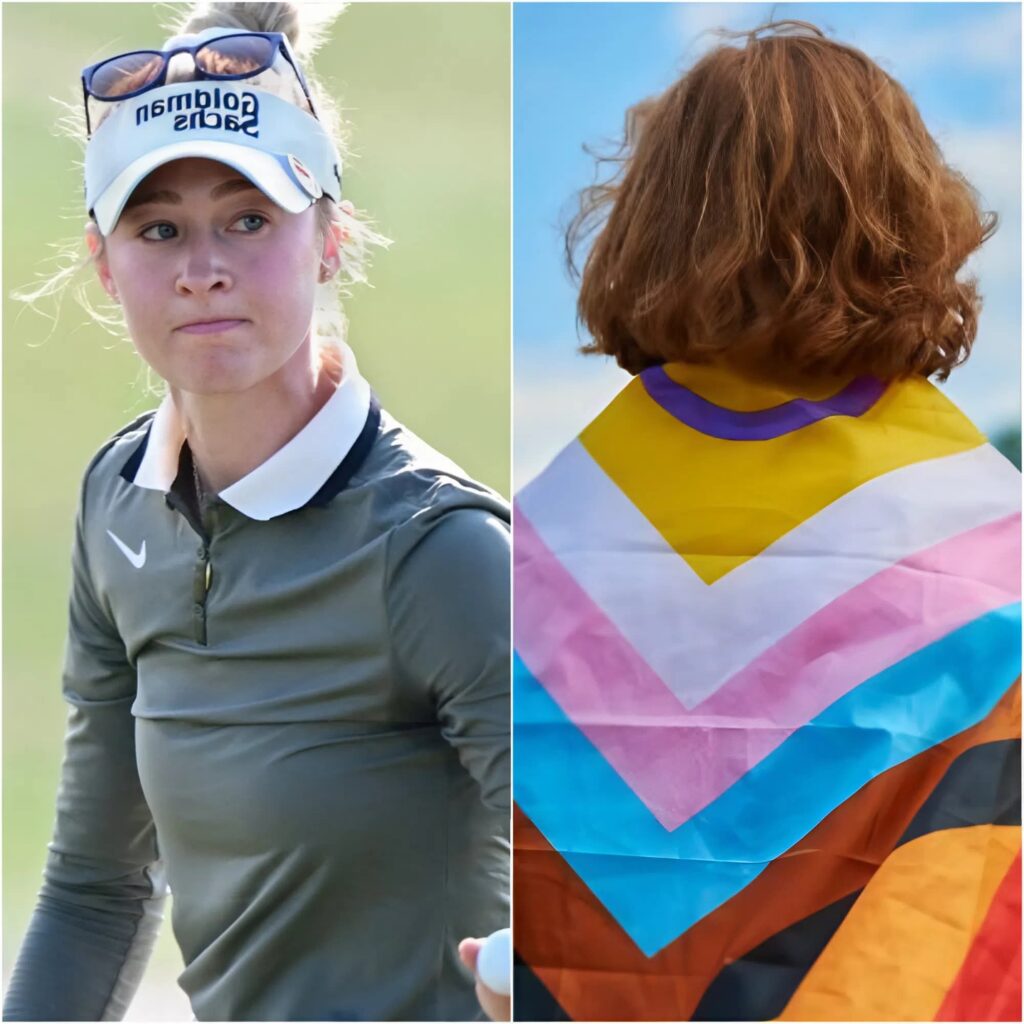In a move that has ignited immediate and fierce debate across the sports world, Nelly Korda, the top-ranked women’s golfer on the planet, has announced she will not be participating in her sport’s upcoming “Pride Night” event. Her reasoning, that golf should remain an arena purely for athletic achievement, has drawn both staunch support and sharp criticism.
The announcement was made through a brief statement from Korda’s management team, which quoted the athlete directly.
“After careful consideration, I have decided not to participate in the upcoming Pride Night event,” Korda’s statement read. “I believe this sport should focus solely on performance on the course, not on political issues or social movements. My job is to win tournaments and inspire the next generation of golfers through my game.”
The “Pride Night,” organized by a coalition of golf associations and corporate partners, aims to celebrate LGBTQ+ inclusion in the sport and foster a more welcoming environment for players and fans alike. Korda’s withdrawal, given her immense profile and status as the face of women’s golf, is seen as a significant blow to the event’s visibility.
Reaction has been swift and polarized.
Supporters of Korda’s decision have applauded her for, in their view, “keeping politics out of sports.” Social media feeds are flooded with comments praising her for “standing up for her beliefs” and “focusing on what matters.” Many argue that athletes should not be compelled to endorse social causes.
However, critics, including fellow athletes and LGBTQ+ advocacy groups, have expressed deep disappointment.
“It’s incredibly disheartening when a figure of such influence chooses to frame inclusion as a ‘political issue’ rather than a matter of basic human dignity,” said a spokesperson for Athlete Ally, an organization dedicated to LGBTQ+ equality in sports. “For LGBTQ+ fans and young golfers, seeing the best in the world visibly support them is not a distraction from the sport; it’s an affirmation that they belong in it.”
Several of Korda’s peers on the LPGA Tour, while respecting her right to personal choice, have subtly voiced a different perspective. One veteran player, who asked not to be named, told reporters, “The tour is our workplace. Pride events, for many of us, are about ensuring that workplace is safe and welcoming for everyone. It’s about people, not politics.”
The controversy places Korda in a growing list of high-profile athletes who have faced backlash for sidestepping LGBTQ+-themed events. Her statement echoes a long-standing argument that sports arenas should be neutral grounds, a position that has become increasingly difficult to maintain in an era where athletes are often looked to as social influencers.
As the No. 1 player, Korda’s every move is scrutinized, and this decision is likely to define her public persona far beyond the golf course. The debate she has sparked touches on the very role of the modern athlete: Are they solely competitors, or do they have a broader social responsibility?
With the “Pride Night” event proceeding without its biggest star, the conversation surrounding inclusion, activism, and the separation of sports from social issues is now front and center in the world of golf.

